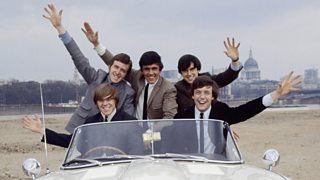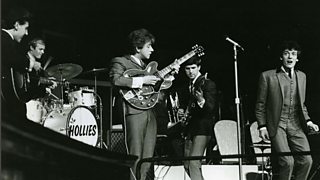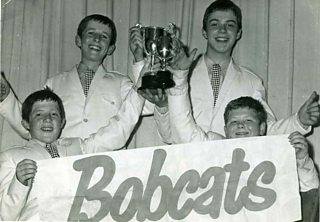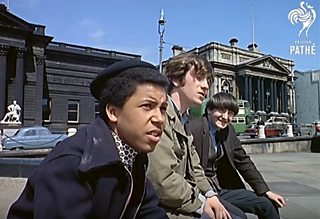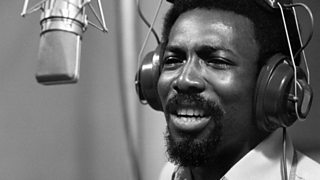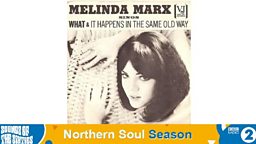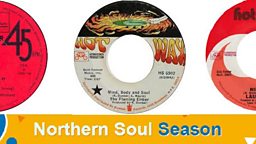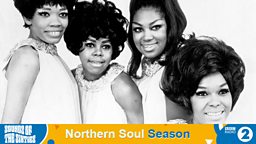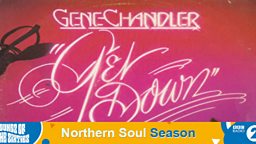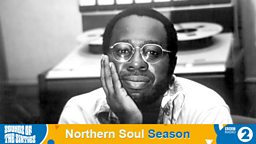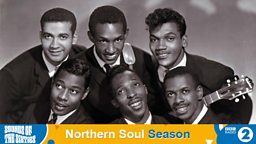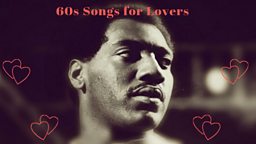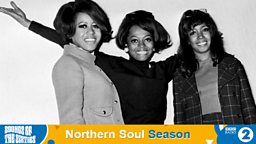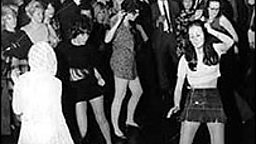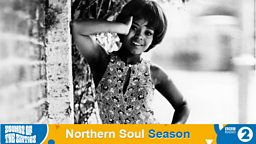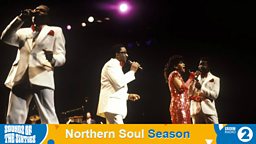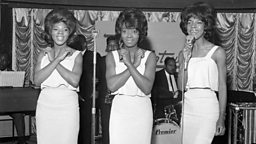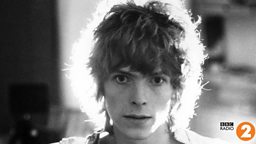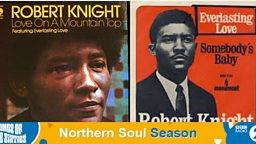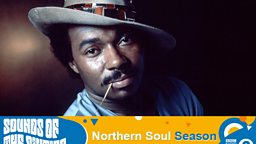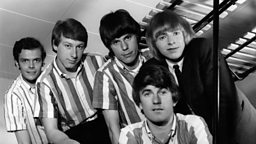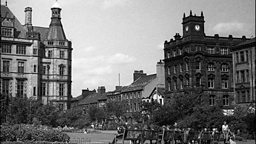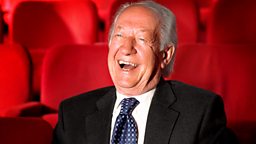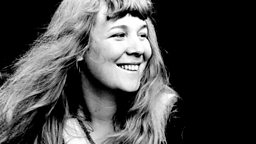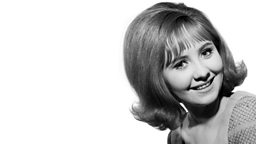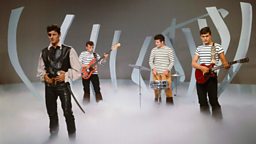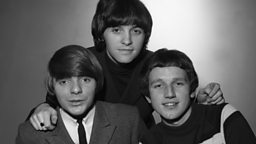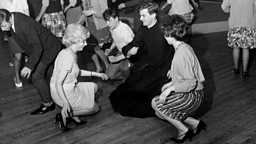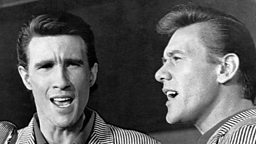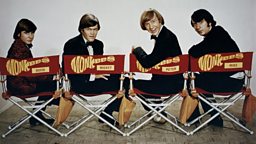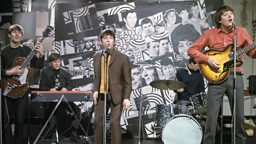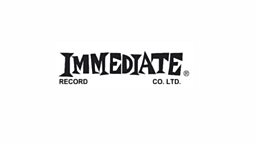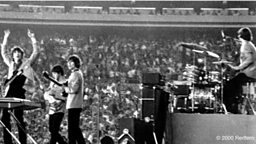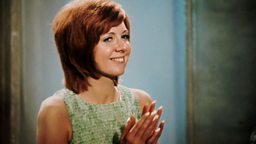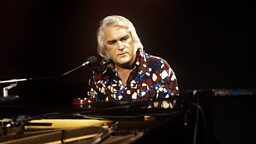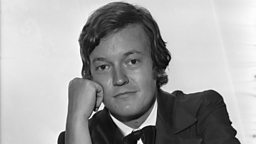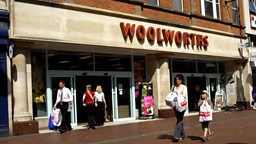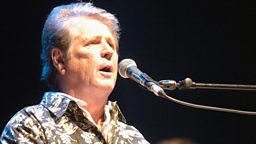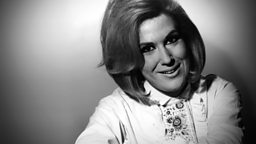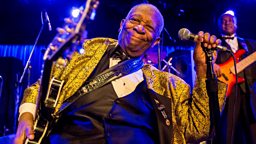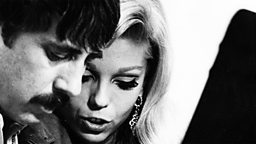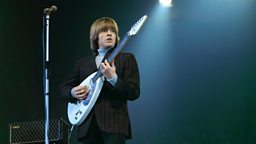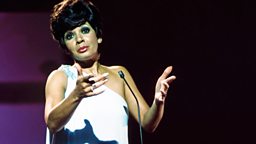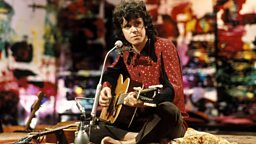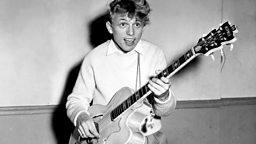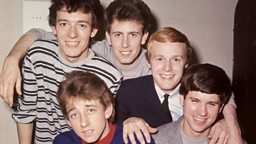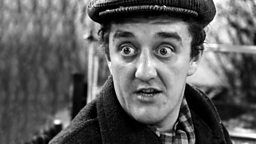Beat Cities: Glasgow
The little told story of the Glasgow beat bands by Bob Stanley
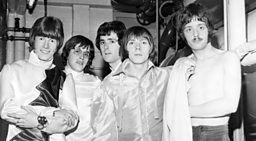
The Scottish sixties beat scene has been relatively undocumented over the years. Certainly, there were fewer venues for groups to play in the early sixties - ballrooms still held sway when the first appeared, and clubs were thin on the ground - but the groups were there. Edinburgh had broken new ground with La Cave, an all-night venue in a side street just off Jamaica Street, which opened in 1962. The capital also provided the first Scottish beat single, recorded by the Athenians and released on the independent Waverley label in January 1963 without causing any fuss south of the border.
Drummer Raymond Duffy went white as a sheet when he realised he'd be playing on Ringo Starr's kit.
Across Scotland, much like the rest of Britain, the Beatles' influence meant that by mid '63 every town had its own beat combo or two: Dunfermline had the Shadettes, who were already playing Needles And Pins before the Searchers single came out; Dundee's Poor Souls cut the fine Lesley Duncan ballad When My Baby Cries; Edinburgh had sister act the McKinleys who made four tremendous singles under the guidance of Birmingham writer/production team John Carter and Ken Lewis.
Glasgow had the big guns though. Dean Ford & the Gaylords were signed to Columbia after they had auditioned for EMI producer Norrie Paramor at the Locarno in Sauchiehall Street in 1963. When they went to Abbey Road to record their first single, Twenty Miles, drummer Raymond Duffy went white as a sheet when he realised he'd be playing on Ringo Starr's kit.
In 1964 manager Andrew Loog Oldham had been on his way to Gretna Green to get married when, at Edinburgh airport, he was sidetracked by a picture of Glasgow group the Poets. They were dressed in high-collared velvet suits and looked moody - Oldham was intrigued and went to see them at their regular haunt, the Flamingo in Glasgow. Their highly original sound was described by writer Brian Hogg as "an ethereal Celtic drone", and Oldham signed them immediately. Within weeks they were in the Top 30 with Now We're Thru (spelt that way to avoid confusion with the Hollies' We're Through), which had a deep melancholy and a cavernous production. It was a strong start but follow-ups - all of a very high quality - failed to chart. Singer George Gallacher later reckoned, without any bitterness, that the were eating into Oldham's time too much in '65 and '66 and so the Poets were sidelined.
Still struggling for a hit, Dean Ford & the Gaylords moved to London in 1966 and soon changed their name to the hipper sounding . Signing to CBS, and now based out of shared flat in Archway, the Marmalade's third single was the self-penned I See The Rain which was voted 1967's single of the year in Melody Maker by no lesser figure than . The group said this accolade was the equivalent to winning an Oscar! The single didn't chart but within a year Lovin' Things had begun their long run of hits. The Poets, however, had split by now, after issuing their final single, Wooden Spoon, in 1967. It had been an outstanding farewell, distinguished by Fraser Watson's divebombing guitar and the help of a ferocious guest drummer - Raymond Duffy of the Marmalade.
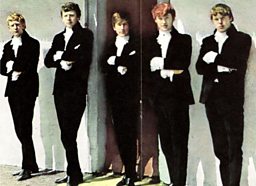
-
![]()
Bob Stanley with some of the best Beat bands from the Capital...
-
![]()
Bob Stanley on Sheffield beat band, 'The Sheffields'
-
![]()
The Hollies and The Toggery Five: inside Manchester's beat scene in the 1960s with Bob Stanley
-
![]()
The Beat Boom: Birmingham in the 1960s
-
![]()
Bob Stanley looks into the Beat Boom in the vibrant city of Liverpool
-
![]()
Wilson Pickett, Cilla Black, Marmalade and more - the stories behind this weeks playlist
